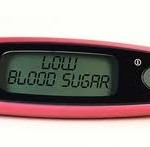Risk and Realities of Hypoglycemia for Individuals with High Blood Sugar
Controlling blood sugar is important for diabetics. When well-managed, a person with diabetes only needs to make a few changes to their lifestyle. But, when there are issues with fluctuating blood sugar levels, you could be at risk for complications like hypoglycemia.
Understanding Hypoglycemia – Low Blood Sugar
 Even people who have not been diagnosed as diabetic may get weak after exercise, or when they forget to eat. They may refer to this as “hypoglycemia.” Although their blood sugar may be low, it may not necessarily be actual hypoglycemia. Healthy individuals may suffer from a true case of hypoglycemia, or low blood sugar, but when diabetes is also an issue, hypoglycemia is a very serious threat.
Even people who have not been diagnosed as diabetic may get weak after exercise, or when they forget to eat. They may refer to this as “hypoglycemia.” Although their blood sugar may be low, it may not necessarily be actual hypoglycemia. Healthy individuals may suffer from a true case of hypoglycemia, or low blood sugar, but when diabetes is also an issue, hypoglycemia is a very serious threat.
Just like sugar in the blood can rise to high levels, blood sugar can also fall below the normal level. This is referred to as “insulin shock” and can seriously affect those with Type 1 and Type 2 diabetes who are both dependent and non-dependent on insulin.
 There are several reasons that the blood sugar may fall below normal:
There are several reasons that the blood sugar may fall below normal:
- You forgot to eat
- You ate too little
- You exercised too much
- You drank alcohol
- You did not manage your insulin
Common Symptoms of Hypoglycemia
With hypoglycemia, there is not enough glucose in the blood to be carried to the cells for energy. Extra sugar stored in the liver as glycogen will be tapped, but after that, the body starts to go through changes.
 The early signs of hypoglycemia may include:
The early signs of hypoglycemia may include:
- trembling,
- clammy skin,
- palpitations (pounding or fast heart beats),
- anxiety,
- sweating,
- hunger, and
- irritability
At the first sign of hypoglycemia, get some source of sugar into your body. It is recommended that diabetics take candy, glucose tablets, or a convenient carbohydrate with them to replenish their sugar if needed. These episodes are more prevalent before bed or upon waking up so keeping some form of sugar on your nightstand is a good idea.
One of the organs that rely on sugar is the brain. When the sugar levels get low, the brain has a hard time functioning normally.
 Severe low blood levels can lead to:
Severe low blood levels can lead to:
- difficulty in thinking,
- confusion,
- headache,
- seizures, and
- coma
In this hypoglycemic state, it is almost like you don’t have the energy to move, and if you could move, you wouldn’t know which direction to go. If you see a diabetic person experiencing these signs, they need sugar right away and medical attention.
 It may be difficult for long-time diabetics to recognize a hypoglycemic episode. They may have gotten used to feeling a certain way and don’t pay attention to the symptoms anymore. This can also happen to diabetics who haven’t been taught what to watch for in a hypoglycemia episode. That’s why information is so crucial.
It may be difficult for long-time diabetics to recognize a hypoglycemic episode. They may have gotten used to feeling a certain way and don’t pay attention to the symptoms anymore. This can also happen to diabetics who haven’t been taught what to watch for in a hypoglycemia episode. That’s why information is so crucial.
If you have been diagnosed with diabetes, learn everything you can about treatment and symptoms for hypoglycemia. Even if your diagnosis came many years ago, there are still things you should learn. Knowledge is power when it comes to controlling your diabetes.
